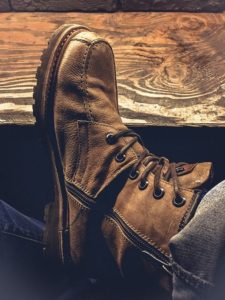When it comes to slip and fall personal injury cases, proving responsibility can be a big challenge.
Especially with large businesses like Wal-Mart, negotiating with insurance companies can be extremely difficult. Not to mention, for example, Wal-Mart’s policy of fighting personal injury lawsuits all the way to trial. But, in New Mexico earlier this month, there is a new type of personal injury case facing Wal-Mart.
It raised the question, can faulty shoes cause personal injury? If so, who is liable?
The man with the faulty shoes
In Badilla v. Wal-Mart, a man claimed that he purchased a pair of shoes from Wal-Mart which came apart at the soles. This defect, he alleged, caused him to trip and injure his back. In the lawsuit, he alleged a breach of an express and implied warranty that Wal-Mart makes for its goods.
Slip and fall versus products liability
The Badilla case is an example of a products liability, despite the fact that the shoes made him trip. The laws governing a product liability claim are different in each state. However, there are three basic types of products liability cases, based on negligence, breach of warranty and strict liability.
To prove a products liability case you must show that the product was defective, you sustained an actual injury, your injury was caused by the product defect, the seller or manufacturer owed you a duty to make or sell a safe product.
What Is a defective product?
A defective product is any product that causes injury to a person due to design defect, defective manufacturing, or faulty labeling.
While you may be injured using any product, if that product is not defective, there is no basis for a lawsuit. Consider, for example, the case with the defective sole. If you have owned a pair of shoes for 10 years and the sole eventually wears out and comes apart, causing you to trip, there is likely no basis for a lawsuit. But if you just purchased those shoes, as in the Badilla case, and the sole detaches causing you to trip and fall, then the defect could be the basis of a lawsuit.
If it can be shown that the manufacturer did not detect the flaw before it was sold, they may be held liable for your injuries.
Theories of liability for product defects
There are generally three theories of liability in these types of cases: manufacturing defects, design defects and failure to warn. Consider the defective shoes. If, during the manufacturing process, the adhesive was not properly applied to the sole of the shoe, causing it to detach unexpectedly, that would be considered a manufacturing defect. Now, if the person responsible for designing the shoe, creates a new design that changes how the soles are attached, which effectively makes it easier for the soles to detach, then, the new design defect may be the cause of your injuries, and the basis for a lawsuit.
If you have questions regarding defective products, or any other personal injury concerns, call the Cottrell Law Office at (888) 433-4861.



